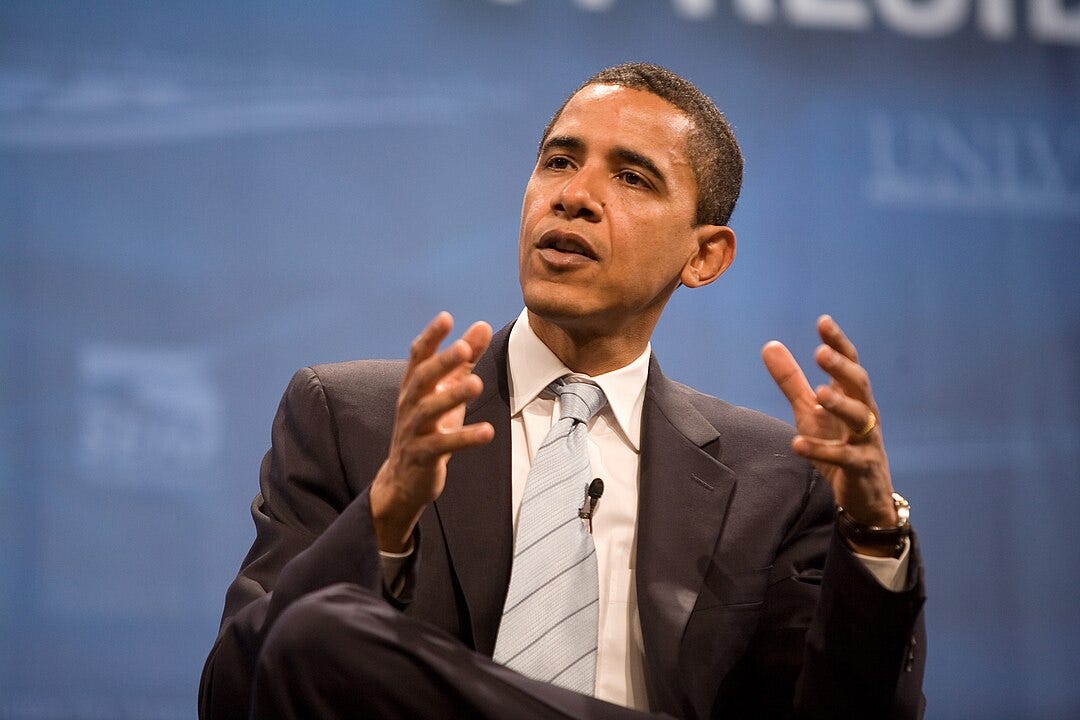The Neuroscience of Electing Kamala Harris
"Making the case" won't be enough. Answering this question would.

I am banging my head on my desk right now.
My family’s text message chat is usually pretty feisty and funny, but as Election Day gets closer it’s gotten more intense. Pres. Biden’s decision to end his re-election bid and endorse VP Kamala Harris is a hot topic.
1: I am banging my head on my desk right now. I have three Black women in my office right now. One said that she’s not going to vote, another says that she’s not voting for Trump but she won’t say she’s voting for Kamala, the other says she’s voting for Trump. I’m done.
2: My heart just dropped! Why lord why
1: 😩 I wish I were making this up.
2: Any rational reasons?
1: They are saying their finances were better then
2: I give up. Not to know the difference between inflation and corporate greed. And none of the other stuff matters!
3: I saw somewhere online all of Biden’s accomplishments since taking office and I was surprised. All we can do is pray and share FACTS and VOTE!!🙏🏾🙏🏾🙏🏾. NO FEAR JUST FAITH🙏🏾🙏🏾 We ain’t in control and never have been.
Totally understandable irritations. But what do you do about them?
The newly christened Harris/*insert VP here* campaign is off to a strong start. Fundraising is breaking records, and she seems to have enough delegates to clinch the nomination at next month’s Democratic National Convention in Chicago. But if Democrats approach this the way many progressives approach political arguments, VP Harris could lose to Donald Trump. Making the rational case for her is not good enough, and it’s easy to understand why.

I bet you’re the kind of person who likes to be more rational than wildly emotional: more of a neocortex person than a limbic brain person. Progressives often critique Republicans and conservatives for exploiting dogmas rather than sticking to reasoned arguments. Many on the left consider themselves above such base appeals to emotion. But speaker & consultant Simon Sinek says our neurological hardwiring explains why these appeals work.
The truth is, according to Sinek, none of us is as rational as we think. Reason being: the part of the brain that makes decisions is the limbic brain — the emotional part — not the rational part, the neocortex. We think decisions through, but an emotional turn cements them: confidence, for example. Confidence is an emotion. Emotions prompt decisions.
Progressives sometimes act like they’re above this. If that was true, Barack Obama might not have won in 2008.

His campaign exemplifies this neuroscience. As then-Senator Obama told his story, discussed his policies and revealed his personality, people began to feel something meaningful. His campaign slogan “Yes, We Can” embodied a powerful emotion: Hope.
On top of that, voting for him felt a little like a flex. A Black president? In America? No wonder his 2006 political memoir was called The Audacity of Hope.

Abraham Lincoln understood the power of emotion years before winning the presidency. In 1858 he publicly debated Stephen Douglas seven times across Illinois ahead of that year’s US Senate election. Lincoln lost, but he said something in that first debate that has stuck with me for years:
“With public sentiment, nothing can fail. Without it, nothing can succeed.”
Lincoln understood that our “sentiment” drives outcomes far more than rational arguments. Never-Trumpers need to stop tearing their hair out over Donald Trump’s political influence or the millions of voters apparently in his thrall. It’s really very simple: he makes them feel something that drives their behavior. And what is that feeling?
It’s the “G” in MAGA: Great.
Trump voters have said for years that they felt America had left them behind, that it wasn’t the nation they grew up with, and they wanted their country back. Greatness inspires a lot of powerful feelings: pride, superiority, confidence, vengeance, righteousness, zeal, even relief at being restored to your rightful place at the top of the heap. That’s why Donald Trump never really had much of a policy agenda: he didn’t need one. He knew what he wanted voters to feel about him and, thus, to feel about themselves for supporting him.
So what does all this mean for my relatives banging their heads on their desks?
It means that explaining why Kamala Harris should win is not and never will be enough. Those things have to get done, and her campaign will see to that. But for everyday voters, no matter which candidate you support, you’re much better off making the emotional appeal than the intellectual one.
Had I been sitting with those three women, I would’ve asked them about their children. One day they’re going to grow up and reflect on the world you built for them. When they ask why you voted for Donald Trump, or perhaps didn’t vote at all, how proud will you be to answer them? Is that vote the best you can do for your kids?
…yeah, you’re right: it is a rough question! And that’s the point. Asked with respect and patience, an emotional question pierces the truth of a person’s actions.
Ronald Reagan rode this to victory over Jimmy Carter with a simple, evocative question at their 1980 presidential debate: Are you better off than you were four years ago? This rational question would prompt a list of rational responses about cost of living, quality of housing, sense of safety, professional opportunity, and so on.
But all those answers are wrapped in emotions about life getting better or worse. The question is rational, but your relationship to it is deeply emotional. Reagan won just over half the popular vote and nearly 91% of the Electoral College.
The Harris campaign cannot win without refining its emotional appeal. That might begin by brainstorming answers to this question:
How would it feel to vote for Kamala Harris?
Those irrational, engrossing, perhaps misguided and xenophobic feelings various Americans have toward her — driven partly by their ignorance of who she even is — are the #1 factor in their votes. If they feel nothing toward her, then Donald Trump has a chance to set the tone and drive their actions. Their antipathy is no reason to be discouraged. It’s a gift: a series of clues that operatives & volunteers can focus on influencing.
America isn’t just an experiment in democracy. Day-to-day government is an experiment. Politics is an art project. It’s about perception, emotion and action. Accepting our human hardwiring and working within it can make things happen.



great stuff.
What an interesting piece. Thank you for explaining this.